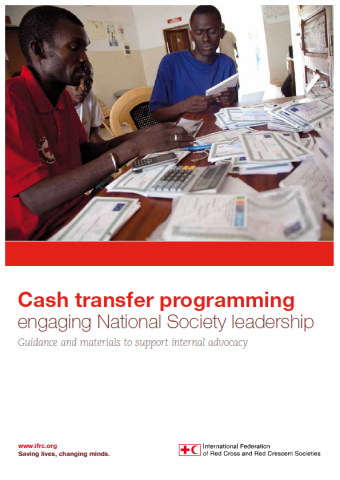Cash transfer programming: engaging National Society leadership


This guidance has been developed to facilitate internal advocacy regarding cash transfer programming. It provides the materials required to run an awareness session for senior representatives of a National Society on the nature of cash transfer programming, its challenges and benefits. National Societies work in different contexts and as such the materials will need to be adapted to suit the specific purpose.
To adapt the materials effectively, the organizers must understand the internal and external constraints the National Society faces in this regard. These constraints and barriers should be explicitly addressed through the awareness session.
Use this guidance note if:
- you are working with a National Society that could benefit from including cash transfer programming in its toolkit for emergency response
- there are technical, social, or political constraints to cash transfer programming being included in the toolkit for emergency response
- you see that there is an opportunity to engage the National Society in a discussion that could shift the balance in favour of cash transfer programming.
– IFRC 2013
